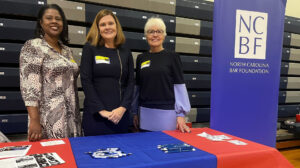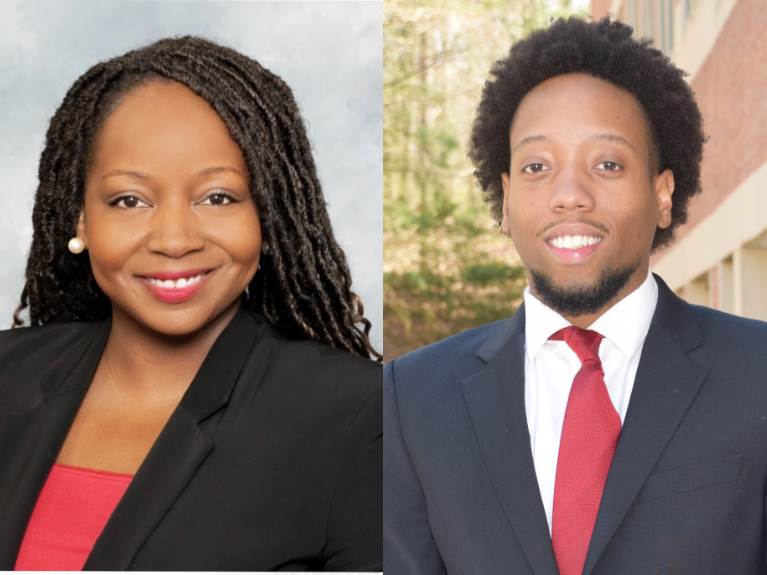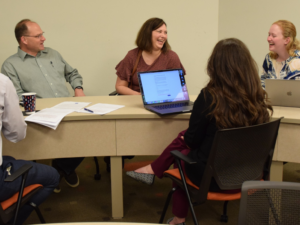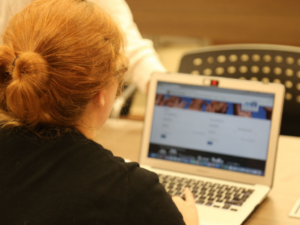The Intersection of NCBF Values through Programs
 The five pillars of the NCBF Values Statement are imperceptibly woven into the fabric of NCBF pro bono and civic education programs.
The five pillars of the NCBF Values Statement are imperceptibly woven into the fabric of NCBF pro bono and civic education programs.
But it is these values of access to justice, service, education, professionalism, and diversity, equity and inclusion that bind the programs of the NCBF with the highest ideals of the North Carolina Bar Association.
Samantha Gordon of Shane Smith Law in Charlotte, this year’s recipient of the Younger Lawyer Pro Bono Service Award, made this connection before she even became a lawyer.
“When I was in law school, Wills for Heroes was presented to me through another law student in 2016,” Gordon said. “After attending my first clinic, I continued to volunteer as a law student and eventually as a lawyer. And in 2018, I became a Lead Attorney Volunteer.”
The values of access to justice and service figured prominently into the Foundation’s response to COVID-19, wherein the need for programs such as Wills for Heroes was never more evident.
“In 2020, once the pandemic hit, we were faced with the obstacle of how to hold these clinics, which had always been done in person,” Gordon said. “In the face of this obstacle, we developed a semi-virtual Wills for Heroes program that is even better. Not only has this provided a bigger outreach to first responders, but it has also provided an easier way for attorneys to volunteer.”
City Attorney Kimberly Rehberg of Durham became involved in the NCBF Lawyers in Schools initiative through her service on the NCBA Judicial Independence & Integrity Committee, where civic education has long been a focal point.
“When I walk in the classroom,” Rehberg said, “they are told that I am an attorney. While most have not personally known lawyers, they’ve watched TV and movies where they’ve seen lawyers portrayed. They have basic ideas about what it is that I do for a living. And, while I’m not a criminal attorney, which is what they’ve been exposed to most often, they have a pretty good understanding of what a lawyer is and the role lawyers play in the judicial system.”
High school students can make for a “tough crowd” in the middle of the school day, which only adds to the respect that Rehberg has for educators.
“That is not ‘prime time’ for their alertness and enthusiasm. My observation is that if you can capture their attention even a bit, you can plant the seeds of conviction and even activism. They ask insightful and challenging questions about our political and judicial systems that lay bare the glaring inequities that arise from being poor, from being female, from being Black or brown, from being a non-English speaker, from being undocumented, from lack of opportunity, education, access, and so much more. In my discussions with classes, I let them know that they have the power to do something about the unfairness they observe, if they work at it.”


